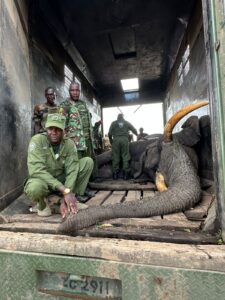Mara Elephant Project is sad to announce that one of our collared large bull elephants, Mytene, was poached on April 10 on the border of the Serengeti National Park and Loliondo in the Ngorongoro district.
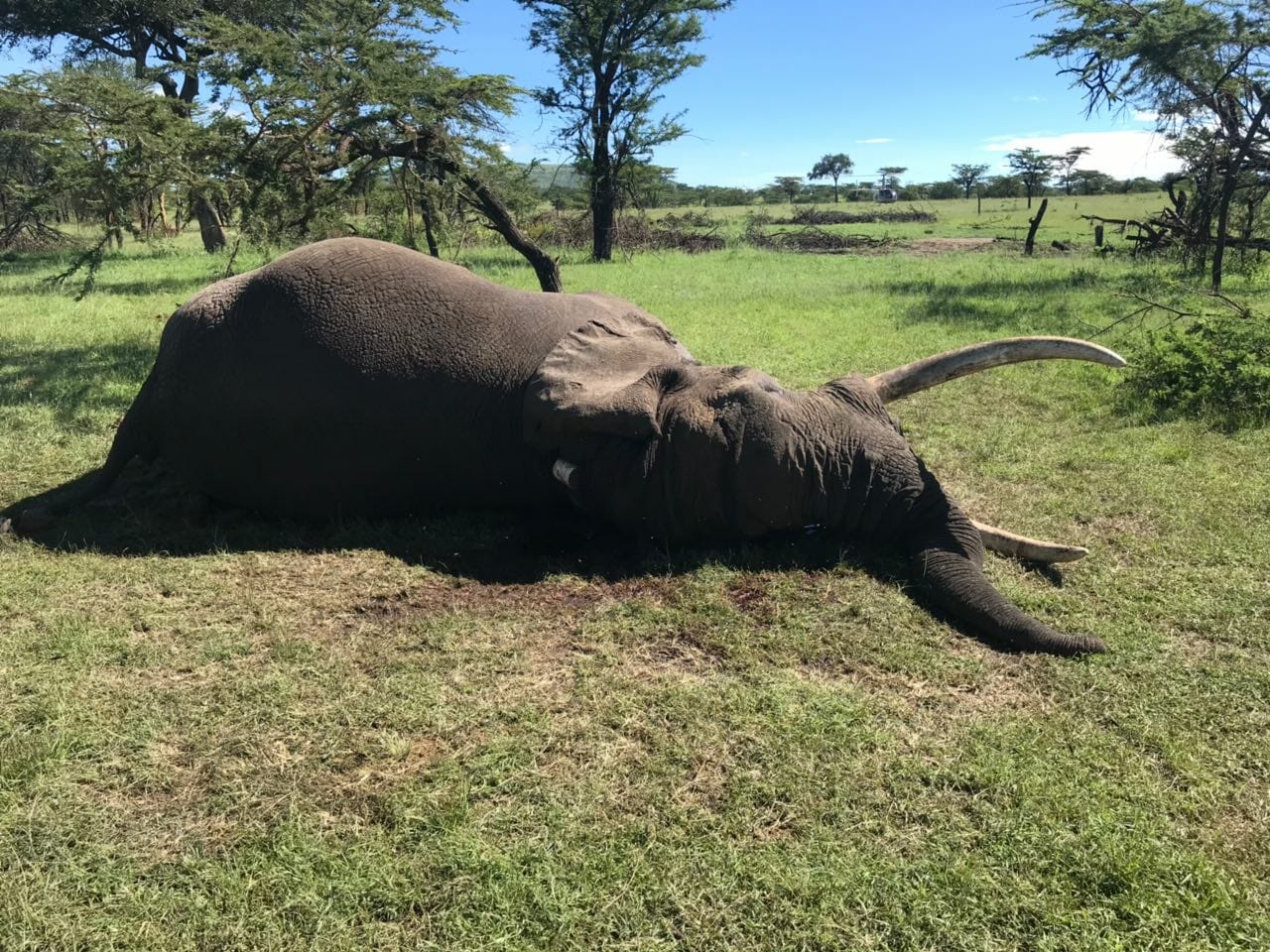 Mytene’s carcass found after receiving the immobility alert.
Mytene’s carcass found after receiving the immobility alert.
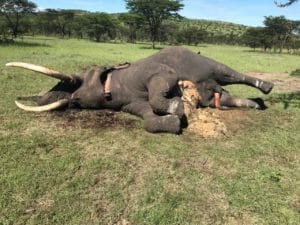
MEP received an immobility alert on the Save The Elephants (STE) tracking system for Mytene’s collar that allowed us to alert our partners at the Tanzania National Parks Authority (TANAPA). MEP sent Mytene’s location coordinates to TANAPA rangers who then responded and found him already deceased from a spear wound to the side of his head.
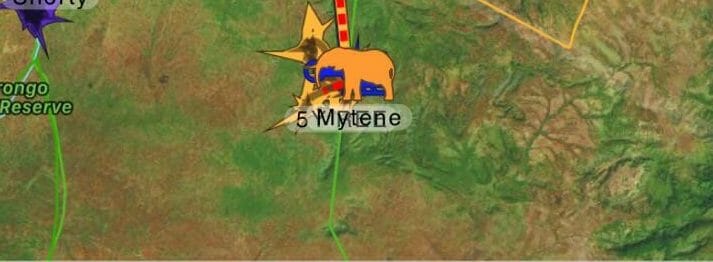 Mytene’s location on the STE tracking app when the immobility alter was received.
Mytene’s location on the STE tracking app when the immobility alter was received.
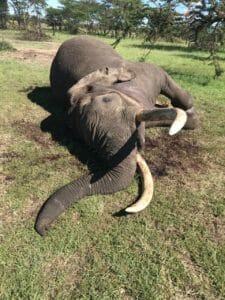
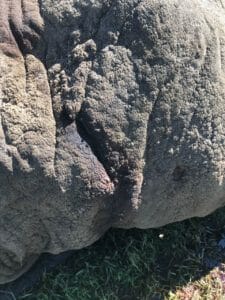
Luckily, Mytene’s tusks (pictured left) were still in place, which we believe is due to the quick response of the TANAPA rangers and MEP’s elephant collar that may have scared the poachers away. Since he was a large bull, Mytene’s tusks weighed 79 kg (174 lbs.) total meaning these poachers would have gotten a large pay day from this one bull’s tusks.
A photo of Mytene’s fatal wound.
Mytene was originally collared in August 2014 in Kenya simply because of the size of his tusks and the need to protect large bulls in the Mara ecosystem from poachers. Mytene moved among the protected areas in Kenya into the Serengeti in Tanzania where he spent most of his time.

Mytene’s all-time movements as shown on the STE tracking app. You can see that most of his time was spent in Tanzania. This map also shows how connected the Serengeti and the Mara are in terms of elephant rangelands.
When he needed to be re-collared due to the three-year lifespan of his collar expiring, we reached out to TANAPA as a partner. So, in May 2017, Mytene was re-collared in the Serengeti as a joint effort between MEP and TANAPA to protect this big tusker from poachers. He was always roaming in protected areas like the Serengeti National Park and unfortunately, despite both MEP and TANAPA’s best efforts, we couldn’t save him.
MEP supporter Karsten Ree with Mytene during his re-collaring operation in May 2017.
What have we learned from this?
We need to expand our area of operation:
Well, this very sad and unfortunate incident illustrates the need for MEP to expand our area of operation into the Serengeti, where the Percentage of Illegally Killed Elephants (PIKE) levels are still higher than 50%. The greater Mara ecosystem is part of the vast Serengeti ecosystem creating a rangeland for elephants to move freely between Kenya and Tanzania. MEP needs to be operating in both the Mara and the Serengeti to ensure that our collared elephants are safe from poachers. In 2017, we started partnering with TANAPA, and in 2018, we are continuing to expand our area of operation to locations bordering Tanzania with high PIKE levels like the Mau Forest and Loita Hills.
MEP aims to increase its security capacity to cover the western Serengeti in June 2018, funds permitting. The Serengeti has been identified as a viable expansion option not only because of the high PIKE level, but also because of the availability of potential partners and areas where conservancies have not started or areas where communities and elephants come into conflict. This will be done in partnership with the TANAPA, Tanzania Wildlife Research Institute (TAWIRI) and the Singita Grumeti Fund. This team will be formed under the umbrella of MEP and will utilize the rapid response to poaching and conflict tactics which MEP has developed successfully in Kenya.
We need to expand our intelligence network:
Using MEP’s baseline arrest data, over 90% of arrests are made by following intelligence data collected by undercover rangers and informants. These rangers infiltrate the poaching network and pose as gunmen, buyers, and ivory dealers. They then call in the rapid response units to make arrests. The intelligence network also consists of informal informants who work on a bonus system. Once an informant has led the security team to a number of successful arrests the informant becomes an investigator.
 Mytene photographed using the helicopter in February 2017.
Mytene photographed using the helicopter in February 2017.
Recent intelligence from our two new areas of operation, the Mau Forest and Loita Hills, suggest that elephants are being poached in Tanzania and the fresh ivory is being brought over the border into Kenya to be exported. In February, our intelligence team started actively working with intelligence agents from the Singita Grumeti Fund in Tanzania to expand our intelligence network. Working together will ensure that we are rooting out poachers and middlemen, coordinating arrests and confiscating ivory and firearms throughout the large ecosystem.
None of this can be done without your support!
Elephants need our protection and the expansion of MEP’s area of operation and intelligence network will require active support from donors like you.
DONATE NOW


